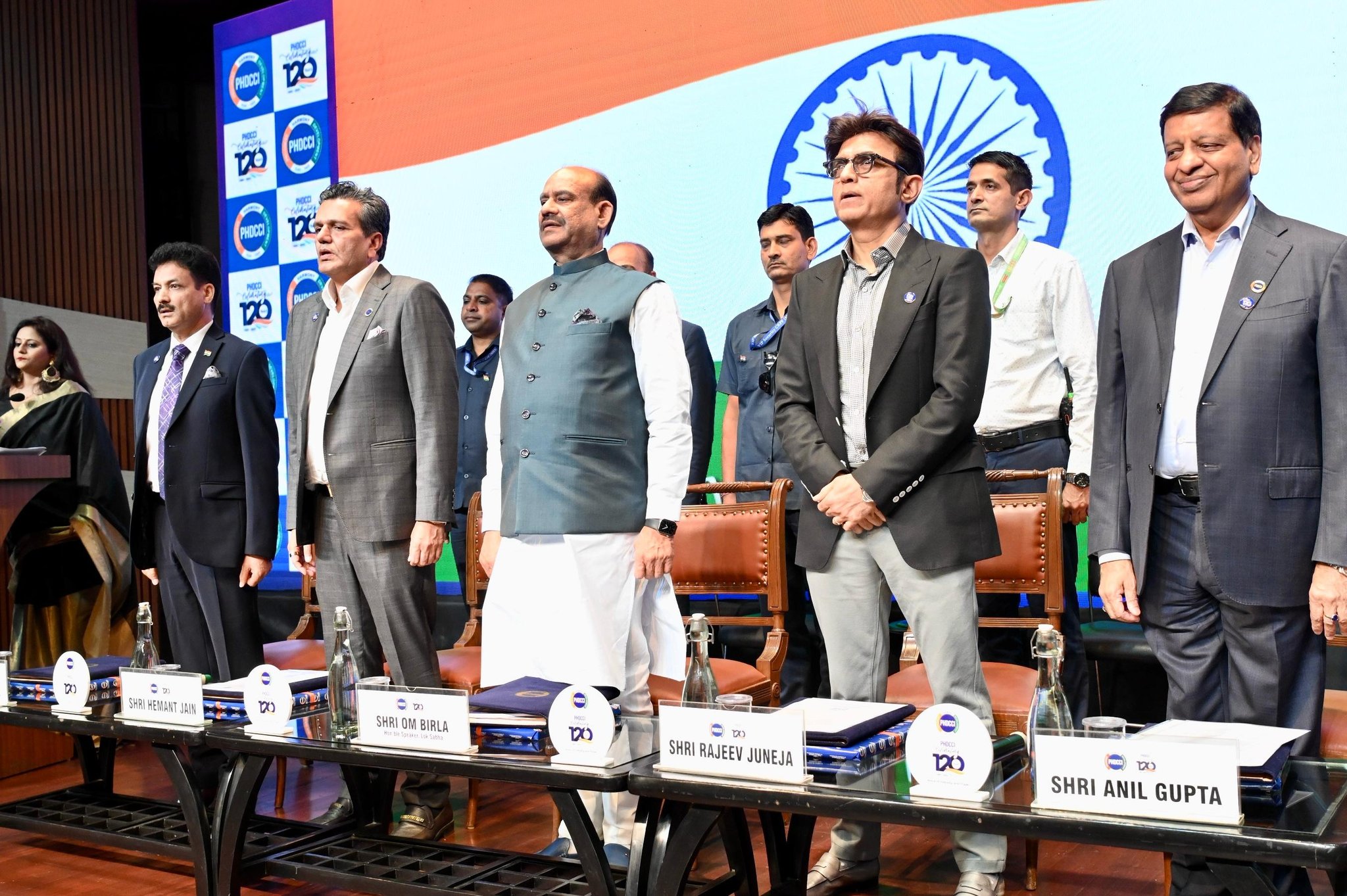Lok Sabha Speaker Om Birla on Wednesday outlined a comprehensive roadmap for achieving the national vision of Viksit Bharat (Developed India) by 2047, calling for a sustainable, inclusive, and innovation-driven development model. Addressing the 120th Anniversary Celebrations of the PHD Chamber of Commerce and Industry (PHDCCI) in the capital, Birla underlined the pivotal role of industry and commerce in realising India’s aspirations of becoming a fully developed nation.
He emphasised that the government’s development-oriented policies are infusing new energy into the country’s industrial landscape, describing the current period as one of economic empowerment and innovation.
Birla said India’s trade policy is rooted in the overarching vision of Atmanirbhar Bharat (self-reliant India) and reflects the nation’s rising stature on the world stage. “Today, India is not just a market, but a beacon for global investors, where ease of doing business is being translated into a lived reality,” he remarked.
Reflecting on the country’s post-pandemic economic revival, Birla said that India has emerged as a symbol of resilience and a source of inspiration for the developing world. He highlighted the impact of key government initiatives like Make in India, Digital India, Gati Shakti, Bharatmala, Udaan Yojana, and the expansion of electronic manufacturing clusters, which are reshaping India’s industrial and commercial infrastructure.
He further noted that reforms such as the simplification of industrial policies, a transparent tax regime, and the single-window clearance system have nurtured entrepreneurship and created a fertile ground for business growth.
India, Birla said, is fast transforming from a consumer economy into a hub of innovation, driven by its start-up ecosystem, which is contributing significantly to sustainable development and propelling the nation toward global leadership.
He pointed to the emergence of a new economic era defined by cutting-edge technologies like Artificial Intelligence and Data Analytics, which are accelerating productivity, transparency, and economic inclusion. The surge in digital transactions, he added, is connecting remote areas to the mainstream economy, ensuring that the benefits of progress reach the farthest corners of the country.
Birla also praised PHDCCI for its role as a critical link between industry and policy makers, providing valuable insights and policy recommendations. He especially lauded the Chamber’s initiatives for empowering women entrepreneurs through development programmes and mentoring platforms, calling it a significant step in unlocking the true potential of Nari Shakti (women power) in business and industry.




















